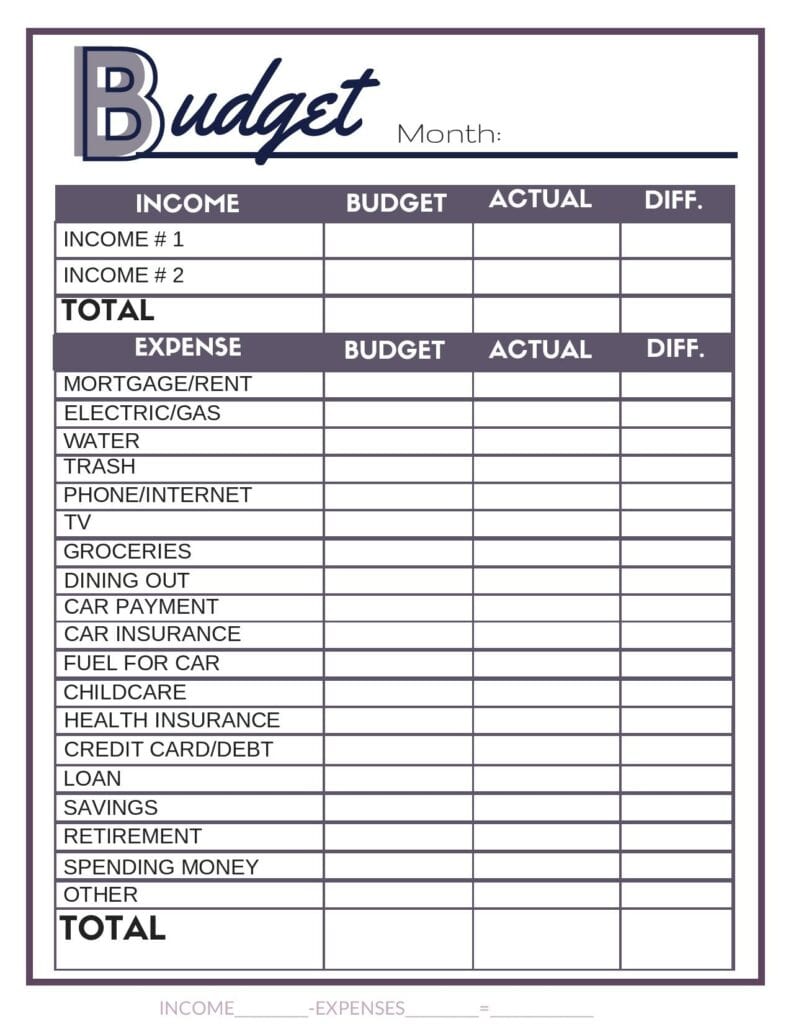


Adjustments to the baseline budget will occur each forecast cycle to accommodate actual results and shifting business conditions as the year progresses. While budgeting refers to the process undertaken prior to the start of a fiscal year to set expected results, the forecast updates that baseline budget throughout the year by taking actual performance into account. Closed quarters are generally populated with actual data as depicted in this figure. Should we leverage prior year actuals as a starting point for this year’s budget or should we leverage a zero-based budgeting method? In other words, should we create a bottom-up budget without using prior year actuals as a baseline?įorecasting is a monthly or sometimes quarterly view of how business is performing against expectations.How will we ensure accountability and encourage behaviors needed to execute the strategy?.Some key questions to ask during the budgeting process include: The budget creation process will provide accountability to revenue, operating expense, and cash flow targets by oftentimes linking certain elements of employee compensation to performance against targets set during the budget. Generally, budgeting refers to the process undertaken prior to the start of a year to set expectations regarding anticipated results for the upcoming fiscal year. A budget is completed for all quarters of the upcoming fiscal year (see below). How will we align resources with our strategy?īudgeting is the annual operating plan that occurs once during the year and is not revised.What business are we in and how do we continue to compete?.Some key questions to ask during the strategic planning process include: You know that story is clear when people around you understand what leadership has chosen to do-and not do. Strategic planning focuses on realizing a 3-5 year vision that addresses most critical market and organizational challenges.Īn effective strategic plan translates your business strategy into a simple story about your organization’s future (see figure below). Let’s take a look at each and what they mean for a company. Planning, budgeting, and forecasting involves activities at a number of levels, from high-level summarized strategic plans to detailed financial budgets and forecasts. All three of these planning elements depend on one another to achieve accurate integrated business planning. Does the plan still meet your needs and help you achieve your goals? If not, make some adjustments or create a new budget that better meets your needs.Financial planning is a key activity for organizations of all sizes to accurately manage profitability and establish the company’s direction for the upcoming year and beyond.Ī strong business planning process consists of sales and operations planning (S&OP), demand planning, financial planning, budgeting, and forecasting.Be sure to review your budget regularly.After you have an emergency fund, your savings can go toward meeting your goals.A great goal is to establish an emergency savings fund large enough to cover three to six months of your living expenses.Check out our savings calculator to learn more. Even a small amount can make a big difference if you keep it up. Saving is a very important part of protecting yourself financially.If your income is not enough to cover your expenses, adjust your budget (and your spending!) by deciding which expenses can be reduced.Your expenses should be less than or equal to your total income.Your budget should meet your "needs" first, then the “wants” that you can afford.Think of your budget as a “spending plan,” a way to be aware of how much money you have, where it needs to go, and how much, if any, is left over.
#HELP WITH BUDGET PLANNING SOFTWARE#

"Fixed expenses," such as a rent, auto, or student loan payments, are easy to determine.Review your checkbook register, credit card statements, store receipts, and more.Do not include overtime pay, because you shouldn’t rely on that as regular income.Figure your available income (the amount of your take-home, or net, pay).Think about what you want to accomplish financially in the next three months, the next year, and the next three years.Write down what matters to you and then put your values in order. Follow the steps below as you set up your own, personalized budget: Establishing a budget and sticking to it isn’t easy, but it’s the best way to be in control of your finances and make sure your money is going toward the expenses that matter most to you.


 0 kommentar(er)
0 kommentar(er)
